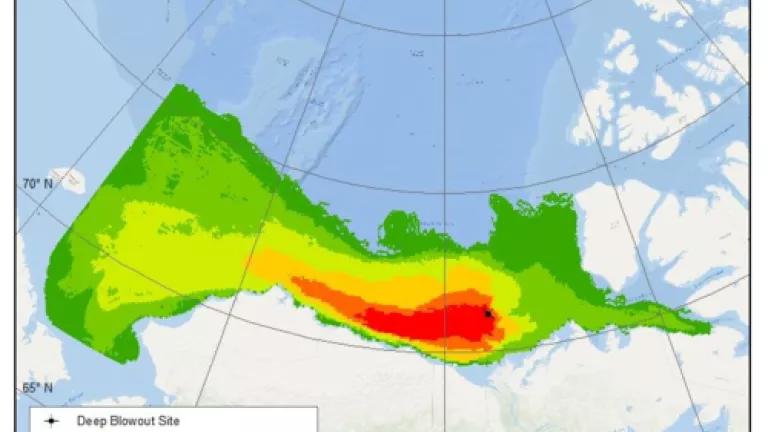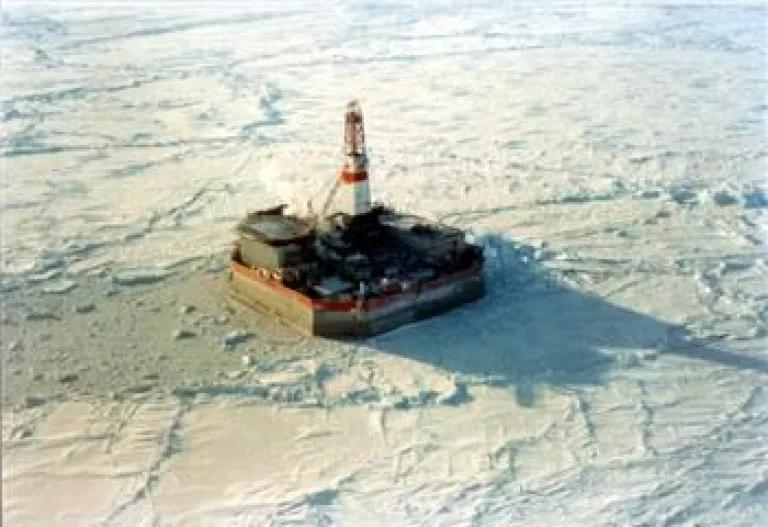Safe For Now: Imperial Oil, Exxon Mobil, and BP Suspend Plans to Drill in Canada's Beaufort Sea

In a surprise announcement, Imperial Oil and its partners--ExxonMobil and BP--informed two Canadian regulators that they would "defer the proposed Beaufort Sea Joint Exploration Drilling Program." NRDC engaged early in the regulatory process to highlight the severe risks posed by Imperial's proposal to commence deep sea drilling in the Canadian Arctic without essential safeguards (such as relief wells). By stopping this industry proposal to waive a critical safeguard for offshore drilling in Canada, this victory means that deep water Arctic exploration will for--the time being--not put these fragile waters or our climate at risk. It also means that it is time to begin a meaningful and detailed conversation about economic development and indigenous community opportunity in the Arctic--a conversation that considers viable alternatives to oil and gas development and its propensity for boom and bust cycles.
As the international community comes to grips with the scientific community's call to keep at least three quarters of fossil fuel reserves in the ground to avert catastrophic climate change, the need to protect the entire Arctic from exploration is clear on both climate and safety grounds. This latest cancellation, and the proponent's admission that it was not yet ready to drill, should signal to the Obama Administration that it must reconsider and halt its approval of Shell's proposal before the company exposes our last pristine ocean and our climate to the inherent harms of offshore drilling.
This suspension of activity in the waters off Canada's far north comes after a year of requests from Imperial that suggested that, despite economic realities and tremendous risks, they were hell-bent on moving forward with their project. Now, in their letters to Canada's National Energy Board (NEB) and the Inuvialuit Environmental Impact Review Board (EIRB), Imperial makes clear that they were wildly unprepared to pursue this project. Imperial states that it needs time to "undertake the necessary technical studies and develop the technology and processes" necessary for deep water exploration in the Arctic. That's a rather candid admission and comes in the wake of arguments from NRDC and others that Imperial was far from ready to begin drilling in Canada's deep, Arctic waters. It appears now that we were right to be skeptical when Imperial assured regulators and the public that "by using the best available technology and . . . best safety practices" it could achieve the level of safety required by Canadian law and would be ready to share its proposal by "3Q of 2014." Imperial's announcement marks the second departure by an oil company from the region in the past year. Back in December 2014, Chevron also announced that it would suspend its pursuit of deep water exploration in the Beaufort Sea indefinitely.
Not worth the risk. Spill modeling done by RPS ASA for WWF-Canada demonstrates just how bad a blowout in the Beaufort Sea could be. See more here.
This sudden slowdown in the oil industry's interest in the Canadian Beaufort is great news for the Arctic. A key part of both Imperial's and Chevron's plans involved requests to the NEB to waive Canada's longstanding "same-season relief well" policy, which requires offshore operators to plan for and be able to drill a relief well to kill a blow-out in the same season well control is lost. While this policy was long seen as a critical safety measure for any offshore drilling operation, Imperial and Chevron sought to convince regulators that technology had progressed to a point where it was no longer necessary. However, recent regulations from the Bureau of Safety and Environmental Enforcement (BSEE) and the Bureau of Ocean Energy Management (BOEM) in the U.S., imposed that same relief well requirement on all potential U.S. operators in the U.S. Arctic. The reason for this is simple: no matter what happens with the progression of well control technology, a relief well is a necessary contingency plan when all else fails. Otherwise, the specter of an over-winter blowout becomes a real possibility should blowout preventers or capping stacks fail or deployment of these mechanisms becomes impossible due to any number of operating contingencies that are constantly present under variable and risk-laden Arctic conditions. Even so, a relief well is still an insufficient safety condition if preventing an oil spill in the Arctic is the goal. As the Department of Interior's environmental review of U.S. Arctic development found, even with a relief well requirement in place, the likelihood of an Arctic oil spill is estimated to be 75%.

Molikpaq drilling vessel in Canada's Beaufort Sea, circa 1984.
In its recent letters to the NEB and EIRB, Imperial says that it is trying to negotiate extensions to its exploratory licenses, which are set to expire in 2019 and 2020. If these extensions are granted, it is expected that Imperial and its partners would have until 2028 to win approval of their drilling plans and attempt to begin operations. While this means that the fight to save the Arctic from risky, unnecessary development and ecological destruction will continue, it also means that there is now a window to explore and support alternative development scenarios for communities in northern Canada. In this vein, the exciting work currently underway among First Nations communities south of the region is showing the possibility for sustainable economic development through alternative, renewable energy.
With scientists and world leaders calling for ever more aggressive cuts to carbon emissions in coming years, Arctic oil and gas production that is slated to come online in the middle of this century has no place in the world's energy mix. Instead, it is high time to preserve the Arctic's ecological resources and work with communities in northern Canada to imagine an economic future that moves beyond a myopic focus on oil and gas. Thus, Imperial's announcement creates an opportunity for world leaders and northern indigenous leaders to come together to build a profitable, job-creating clean energy economy in the north. We have been given a window of time to act, imagine, plan, and create a modern, 21st Century economy that leaves Arctic oil and gas in the ground.
To urge the Obama Administration to halt Shell's attempt to develop the U.S. Arctic, please go here.

